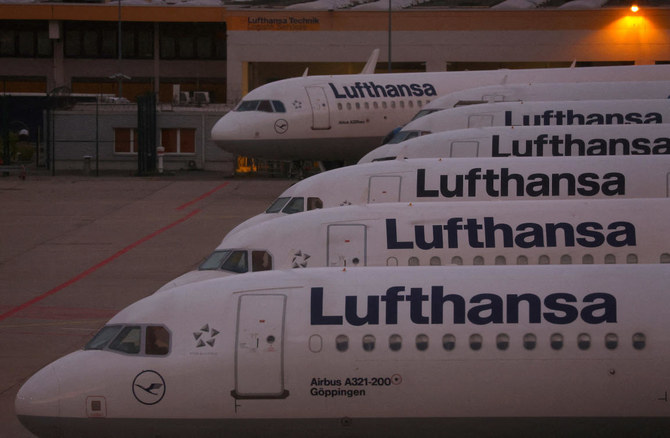BERLIN: A dead body was found in the undercarriage of a Lufthansa aircraft that arrived at Frankfurt airport from Tehran on Thursday, German daily Bild reported.
The discovery was made by workers after the passengers of flight LH 601 had left the aircraft and the A340 had been moved to a hangar for maintenance. The same flight scheduled for Friday has been canceled, according to Lufthansa’s website.
Lufthansa and federal police declined to comment. Frankfurt police was not immediately available for comment.
The incident comes amid widespread unrest in Iran, ignited by the death of Mahsa Amini, a 22-year-old Kurdish Iranian woman who was detained by the Islamic Republic’s morality police for “improper attire” and died in police custody.


Dead body found at Frankfurt airport in aircraft from Tehran
Short Url
https://arab.news/jxgm8
Dead body found at Frankfurt airport in aircraft from Tehran

- The incident comes amid widespread unrest in Iran
UK, allies convinced Kremlin critic Navalny was poisoned

- That was the conclusion of the five governments based on analyzes of samples from Alexei Navalny – statement
LONDON: Britain and allies France, Germany, Sweden and the Netherlands are convinced that late Kremlin critic Alexei Navalny was poisoned with a lethal toxin in a penal colony two years ago, they said in a joint statement on Saturday.
That was the conclusion of the five governments based on analyzes of samples from Navalny, according to the statement issued in London.
It added that the analyzes had conclusively confirmed the presence of epibatidine, a toxin found in poison dart frogs in South America and not found naturally in Russia. The Russian government has denied any responsibility for Navalny’s death.
© 2026 SAUDI RESEARCH & PUBLISHING COMPANY, All Rights Reserved And subject to Terms of Use Agreement.














